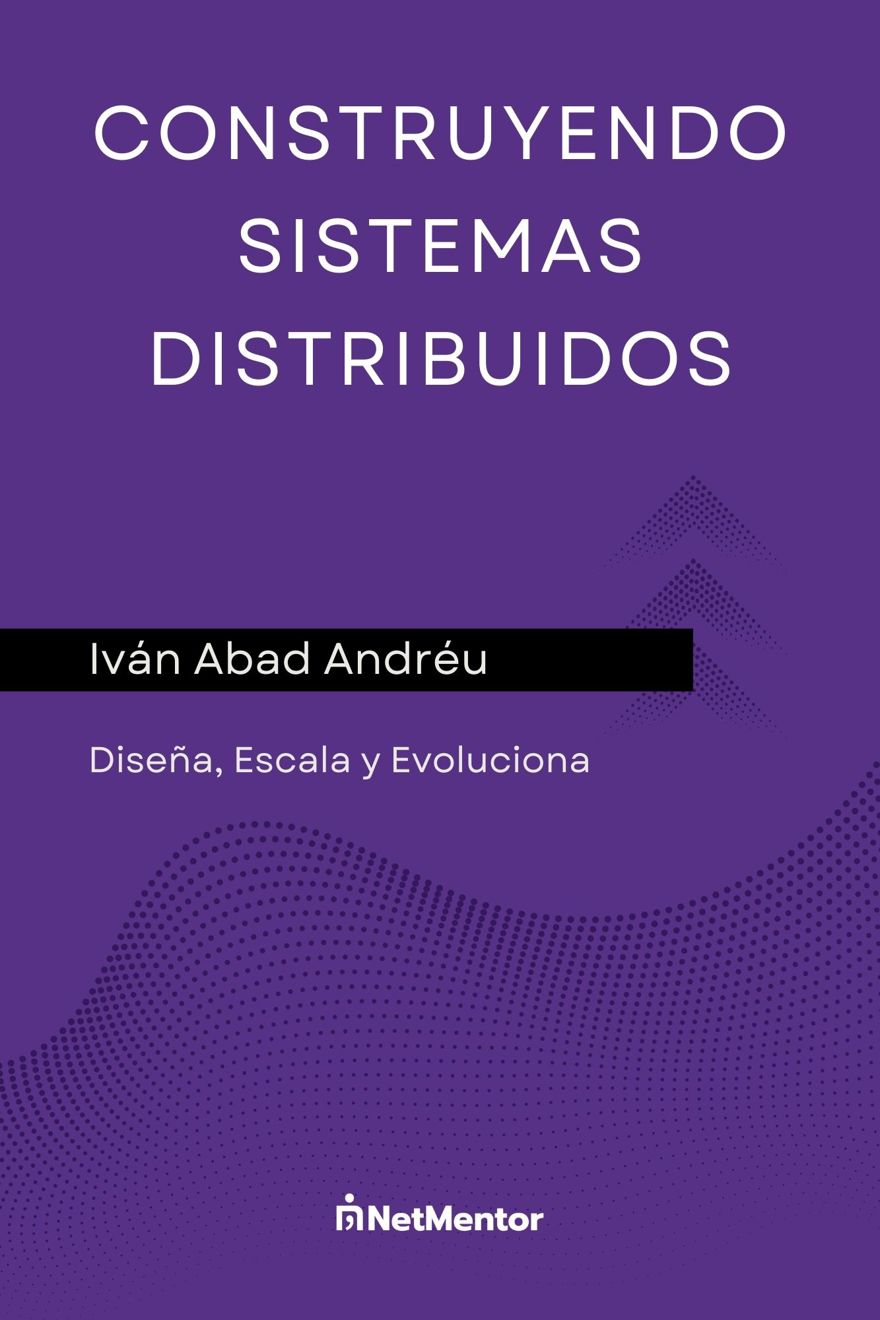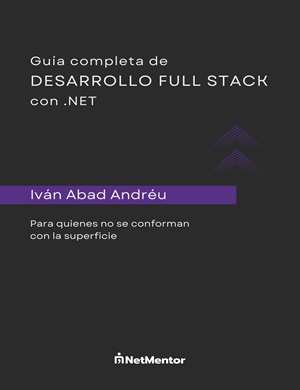If you've been following the live series I've been doing lately, you'll know I've been testing all sorts of AI tools; I've tried automation tools like n8n, did vibe coding with Cursor, and also tried Claude. But none of that compares to what we did the other day with Codex, OpenAI's development tool.
1 - Using AI at Work
For quite some time now, most of us have been using AI in one way or another. Most people have stuck to using Copilot as a helper tool in our IDEs. Maybe someone more invested has used Cursor and knows how to use it well, not just mess around with it, getting much more help while coding.
These types of tools are really handy for creating repetitive and mundane code. Which is great, although they don't always do exactly what you ask, so you need to be careful and always review the code. But generally, they produce something acceptable that usually saves you time.
Beyond that, we can use LLMs to help us or to act as rubber ducks in our daily routine.
Until now, in my opinion, that's been the big use of AI for us developers.
2 - ChatGPT and Codex
In May 2025, ChatGPT launched Codex, an artificial intelligence tool that can write code. The announcement trailer was eye-catching, as always, but I wanted to try it, so I checked if it was available. Initially, it was only available for Pro members, which is a $200 subscription.
Even so, you could join the waitlist if you had the $20 version, so I did.
A few weeks later, I got a message saying it was available, and a few days after that, we tried it live.
Here's the livestream -> https://youtube.com/live/_fHSCuFzZq4
My first impressions blew me away. I didn't ask the AI to replicate Uber or build some big app. I tried to simulate its functionality with a normal task.
For that, I took my code from Distribt and gave it a typical task you might find at a company.
If you're not familiar with this project, it's a personal project based on distributed systems. And if you want to know how to build distributed systems, I have a book for sale!
I asked it to modify the mail service to keep track of the state of sent messages.
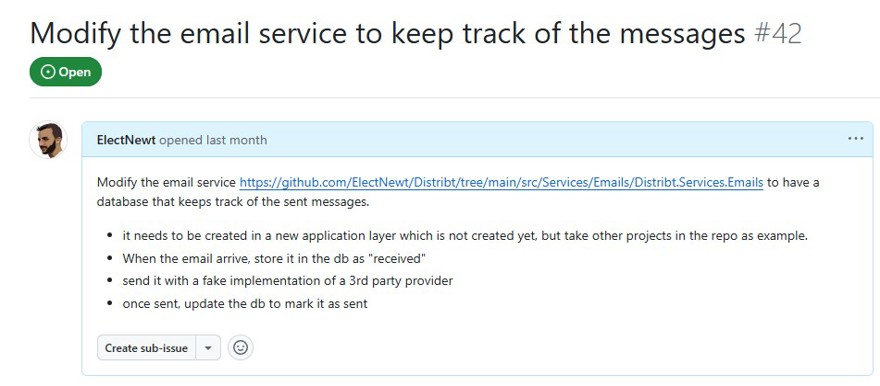
And from that came the following PR -> https://github.com/ElectNewt/Distribt/pull/44
You can see it has some issues, but they are minimal; and this was after reviewing the code just once.
Note: The code issues seen in the PR I fixed manually in under 5 minutes.
Actually, the bug in the code was easy to fix; it was trying to access a class it created in the API layer from the Application layer, so it didn't work.
That and a misconfigured reference, so nothing major.
The development process was as follows:
First, you add the project you want to work on to Codex – in my case, Distribt. Once Codex indexes it in its system, you have a chat, like with ChatGPT, where you can ask questions and request tasks:
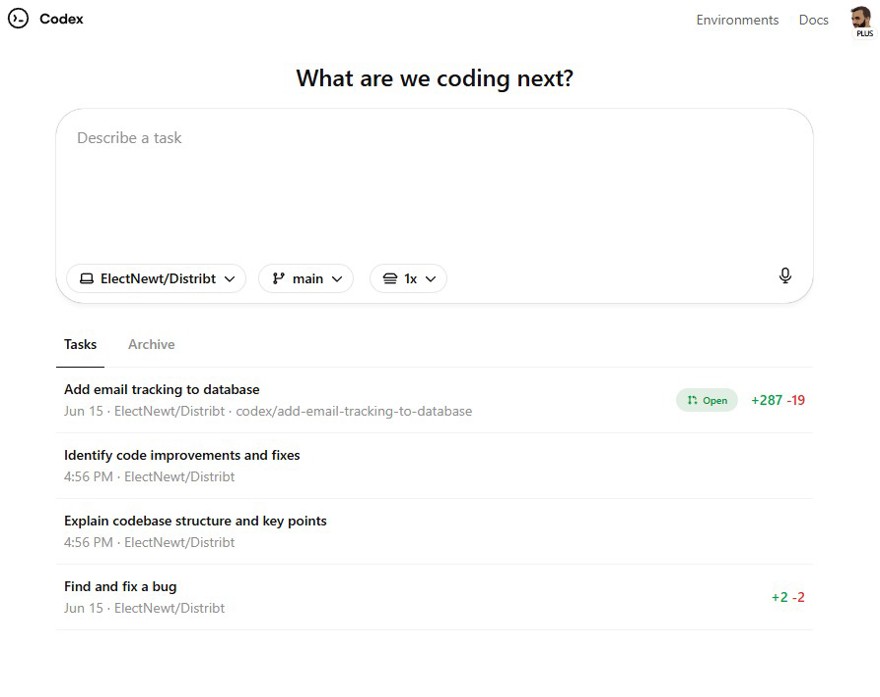
And you simply tell it the task, and it gets to work.
When it's done, it gives you a summary of what it did, how long it took, in my case, 7 minutes for the first version, and provides a screen where you can do a code review.
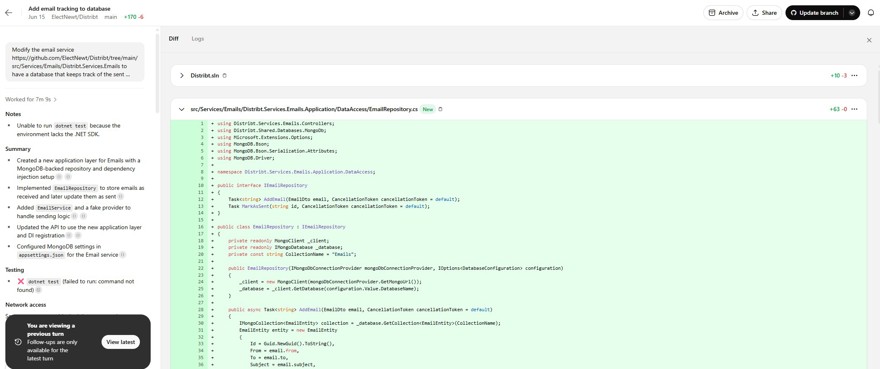
Here we have a totally standard code review window. When you finish, you can leave comments and, of course, ask it to fix them, just like when you're working with other people.
As you can see in the image, it says "dotnet test" command not found. This is because you can set up an environment so all commands and everything you need will work. In my case, since I was just testing, it wasn't strictly necessary, and not having it installed helped me see its capabilities without outside help (the compiler).
So, after another 10 minutes, it finally responded with the code that's linked on GitHub. Everyone can judge for themselves.
3 - Final Thoughts on My First Experiment with Codex
The reality is, I'm amazed, as I said at the start of this blog. I was using AI just for autocompletion, not much else. This feature is wild , in my opinion, it has the skills of a junior programmer, or even a mid developer.
Keep in mind the Distribt code is well organized, structured, and easy to read. We'll have to see how it handles monolithic systems and whether it can understand their code and inner workings.
As someone who lives and breathes programming, for the first time, AI worries me, and I mean that seriously. It has enough capabilities to replace people. Many of you will say that humans will adapt to working this way, but the reality is that there will be a few years when there are no junior positions, because AI does the job better than a junior. So, in a few years, there will be a shortage of seniors who can review what the AI is writing. Some of the issues it has are with architecture or style, but there are others that are more serious and could cause problems in production applications. So a senior human is still necessary to review and make sure everything works as it should.
We'll have to see how it evolves over the coming months or years.
